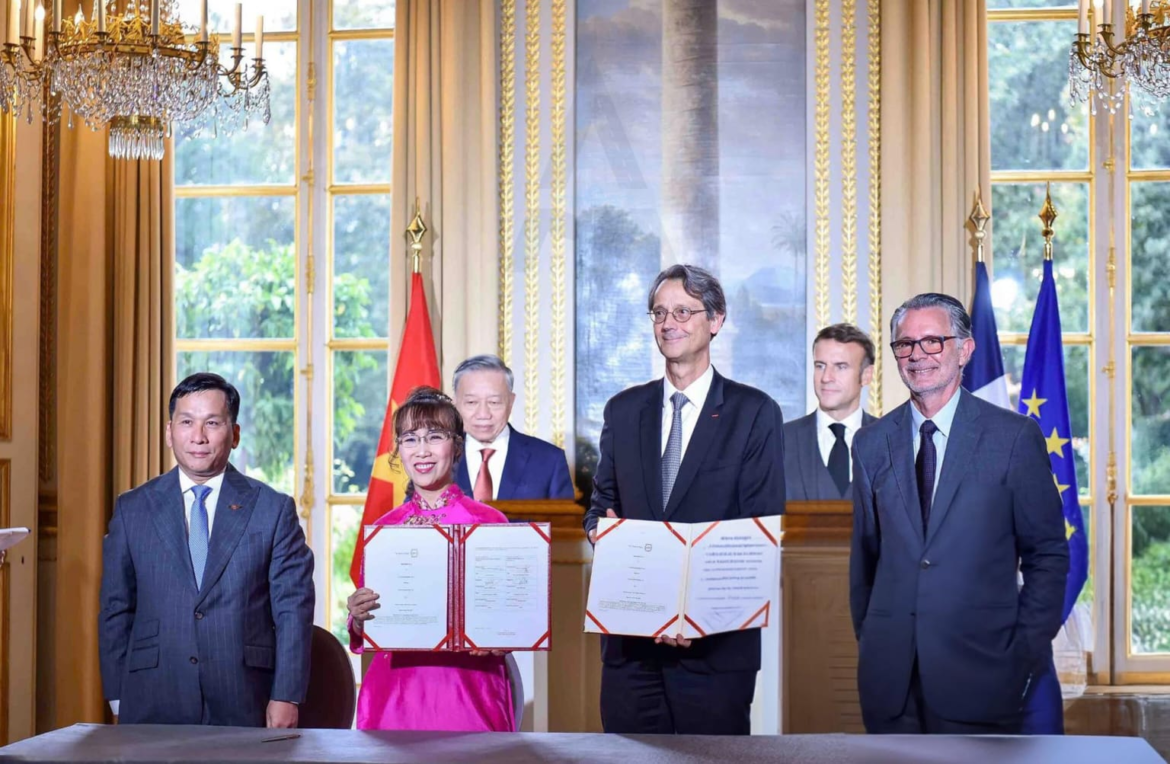VietJet Air, the dynamic low-cost airline based in Vietnam, is set to enhance its fleet with the introduction of the Boeing 737 Max aircraft, with deliveries expected to commence in 2025. This announcement comes amid a series of orders placed with CFM International, the renowned engine manufacturer known for its LEAP engines, which are designed to power the 737 Max series. The partnership between VietJet and CFM International is a crucial component of the airline’s strategy to expand its operational capabilities and enhance efficiency as it continues to cater to the growing demand for air travel in the region.
The decision to order the 737 Max is significant for VietJet, as it seeks to modernize its fleet and improve its overall service offerings. The airline has witnessed impressive growth in recent years, capitalizing on the rapid expansion of the Vietnamese economy and the increasing middle-class population eager to travel. The addition of the Boeing 737 Max, with its advanced aerodynamics, fuel efficiency, and reduced environmental impact, aligns perfectly with VietJet’s commitment to sustainability and customer satisfaction.
One of the most noteworthy aspects of the partnership between VietJet and CFM is the inclusion of LEAP engines, which are recognized for their high performance and fuel efficiency. The LEAP engine technology not only reduces fuel consumption but also lowers emissions, making it a vital choice for airlines looking to meet increasingly stringent environmental regulations. As the aviation industry continues to face pressure to reduce its carbon footprint, VietJet’s decision to incorporate the LEAP engines demonstrates a forward-thinking approach to sustainability and operational efficiency.
In anticipation of the 737 Max deliveries, VietJet is preparing to implement a series of initiatives aimed at enhancing its operational infrastructure. This includes investments in ground support equipment, training programs for pilots and crew, and the establishment of maintenance capabilities to ensure that the new aircraft are serviced to the highest standards. By investing in these areas, VietJet aims to facilitate a smooth integration of the 737 Max into its existing fleet and operations, maximizing the benefits of this new addition.
The delivery timeline for the 737 Max is particularly crucial for VietJet, as the airline aims to capitalize on the anticipated recovery of the aviation industry post-pandemic. With air travel demand steadily increasing, particularly in the Asia-Pacific region, VietJet’s proactive approach to fleet expansion will position it advantageously in a competitive market. The 737 Max is expected to play a pivotal role in helping the airline increase its capacity, optimize routes, and offer more frequent services to both domestic and international destinations.
Moreover, VietJet’s decision to proceed with the 737 Max order reflects the growing trend among Asian airlines to modernize their fleets in response to changing consumer preferences and market dynamics. With passengers increasingly seeking comfort, efficiency, and value, airlines are prioritizing aircraft that can deliver on these expectations. The 737 Max, with its spacious cabin and enhanced passenger experience, is well-suited to meet the evolving demands of air travelers.
VietJet’s collaboration with CFM International also underscores the importance of strategic partnerships in the aviation sector. As airlines seek to enhance their operational capabilities, forging strong relationships with leading manufacturers can provide a competitive edge. The partnership with CFM allows VietJet to leverage advanced technology and expertise, ensuring that its fleet is equipped with the latest innovations in aviation.
Looking ahead, the successful integration of the 737 Max into VietJet’s operations will require careful planning and execution. The airline will need to navigate various challenges, including regulatory approvals, pilot training, and maintenance logistics. However, with a robust strategy in place and a commitment to operational excellence, VietJet is well-positioned to maximize the benefits of its new aircraft and continue its trajectory of growth in the competitive aviation landscape.
In conclusion, VietJet Air’s pending deliveries of the Boeing 737 Max in 2025, in collaboration with CFM International for LEAP engines, represent a significant advancement in the airline’s growth strategy. As VietJet prepares to welcome these modern aircraft into its fleet, the airline is taking proactive steps to enhance its operational infrastructure and meet the demands of an evolving market. The 737 Max will play a crucial role in enabling VietJet to expand its capacity, improve efficiency, and provide an exceptional travel experience for passengers, reinforcing its position as a leading player in the Asian aviation industry.

